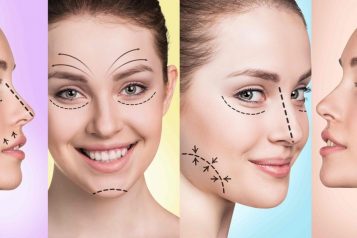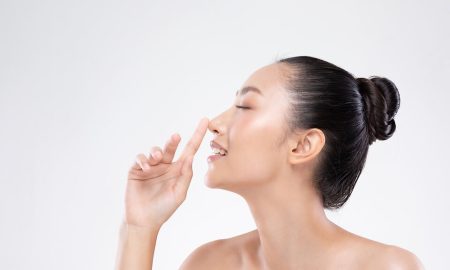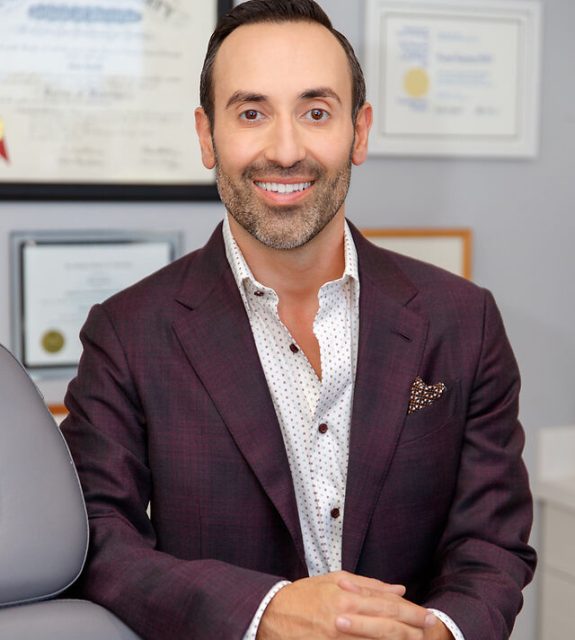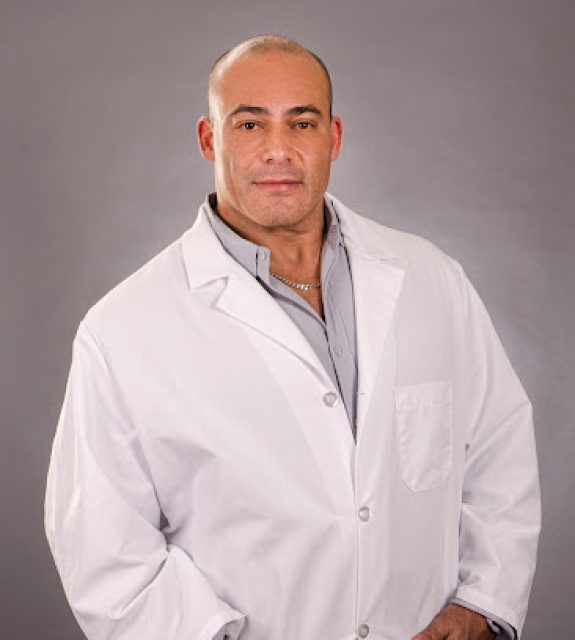Dr. Baruch Tetri is a Doctor of Dental Surgery who provides a uniquely patient-first approach to treatment and planning. His work today reflects nearly two decades of training, education, and successful practice. These combine in truly state-of-the-art treatment and doing more in less time.
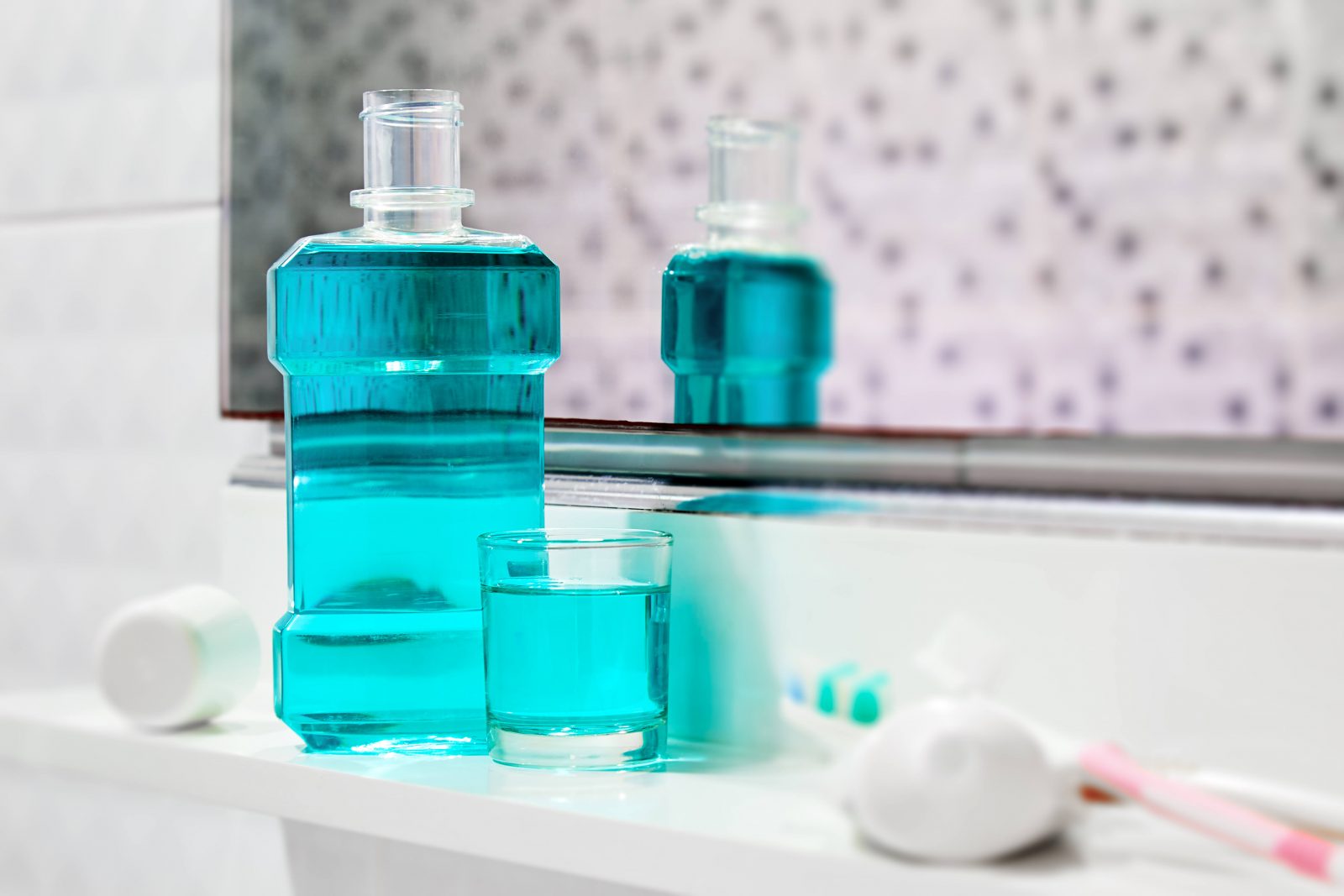
At one point in your dental journey, you have either used or were given mouthwash by the dentist. Most of the time, mouthwash is not explained to the end-users resulting in improper use. Here Haute MD expert Dr. Tetri reviews the risks, goes over his recommendations and dishes on the proper uses of mouthwash.
What are the risks of mouthwash? Can mouthwash cause health problems?
Risks and health problems that could be caused by overuse or wrong brands of mouthwash:
- Wrecks in your oral microbiome
- Dry mouth
- More cavities
- No relief from bad breath
- Formation of mouth ulcers
- Possibly oral cancer risk
Alcohol that is contained in mouthwash destroys bacteria, but it can also cause harm to your gums, inner cheeks and tongue if overused. Mouthwash is not necessarily bad for children under 6 years, their swallowing reflexes might not be well developed at that point, possibly leading to intoxication, vomiting, or nausea. Mouthwash that contains an ingredient called chlorhexidine (CHX), which is only available by prescription, is also likely to cause temporary teeth staining after use.
When should you not use mouthwash?
It’s not recommended to use mouthwash (even a fluoride one) straight after brushing your teeth or it'll wash away the concentrated fluoride in the toothpaste left on your teeth. Also, do not use mouthwash if you have sores in your mouth, have a compromised immune system, or you're currently undergoing chemotherapy.
What are the recommended mouthwashes?
Avoid mouthwashes of any brands because essentially they all are harmful and have barely any beneficial properties. Brushing with fluoride paste and flossing is the priority of your oral health routine. Instead of mouthwash, use salty water after brushing your teeth to remove the plaque as it is a natural remedy and has no harmful ingredients.
However, Listerine is the only rinse that has been given the ADA seal of acceptance and has been proven to be effective when combating/preventing plaque and gingivitis.
Other dentist’s recommended mouthwashes are:
- Crest Pro-Health Multi-Protection
- ACT Total Care Anticavity Fluoride.
- Therabreath Fresh Breath Oral Rinse
- Oral-B Breath Therapy Mouthwash
- OxyFresh Fresh Breath Lemon Mint Mouthwash

Are there any ingredients you should avoid in mouthwash?
The worst ingredient in mouthwash is alcohol. Most mouthwashes contain about 26% alcohol, in the form of ethanol. Chlorine Dioxide, which is a bleaching agent, is another dangerous ingredient. Watch out for Chlorhexidine - a popular antiseptic agent that acts as a major allergen for many people. Cocamidopropyl Betaine is an ingredient that may also cause contact dermatitis allergic reactions, so is not safe for sensitive people.
Parabens that are used in many products, most shampoos and soaps as well are actually endocrine disruptors that may also impact and encourage allergic reactions. Poloxamer 407 has yet to show any bad effects in humans, but is known to cause hyperlipidemia in animals. Well known to everyone, Formaldehyde has numerous bad side effects, including skin reactions, elevated cancer risk, respiration problems, and multi-system shutdown (at huge doses) but is also used in many types of mouthwash. Finally, many companies use Saccharin as a sugar replacement, however, some sources suggest it’s a potential cancer risk.
Is using mouthwash more than twice a day too much? How often should you use mouthwash?
Mouthwash, artificial or natural, should be used twice in a 24-hour period. Once during the day, but you might also want to rinse right before bed. This practice helps prevent harmful oral bacteria action while you sleep. However, the National Health Service (NHS) recommends avoiding mouthwash right after brushing, since this washes away the fluoride from your toothpaste. It is best to find a better time of the day to rinse.
Can I use mouthwash if I’m pregnant?
Mouthwash is safe to use during pregnancy and can be an effective way to keep up with your oral hygiene – especially if you're struggling with gingivitis thanks to your changing pregnancy hormones, mouthwash will relieve swollen gums and prevent cavities.
The American Academy of Pediatric Dentistry advises pregnant women to use a mouthwash. When choosing a mouthwash during pregnancy make sure it is alcohol-free, triclosan-free, and contains no artificial coloring. The safest mouthwash would be a salty water liquid.
How long should you use mouthwash in a single rinse?
The easiest way to learn how to wash your mouth is to pour between 3 and 5 teaspoons of mouthwash in a cup. Then swish for a full 30 seconds in your mouth (try counting to 30 in your head or using a stopwatch). Spit the mouthwash out into the sink. To be on the safe side, you may want to wait around 20 minutes after brushing your teeth to use an oral rinse, especially if it contains alcohol or doesn't contain fluoride.








